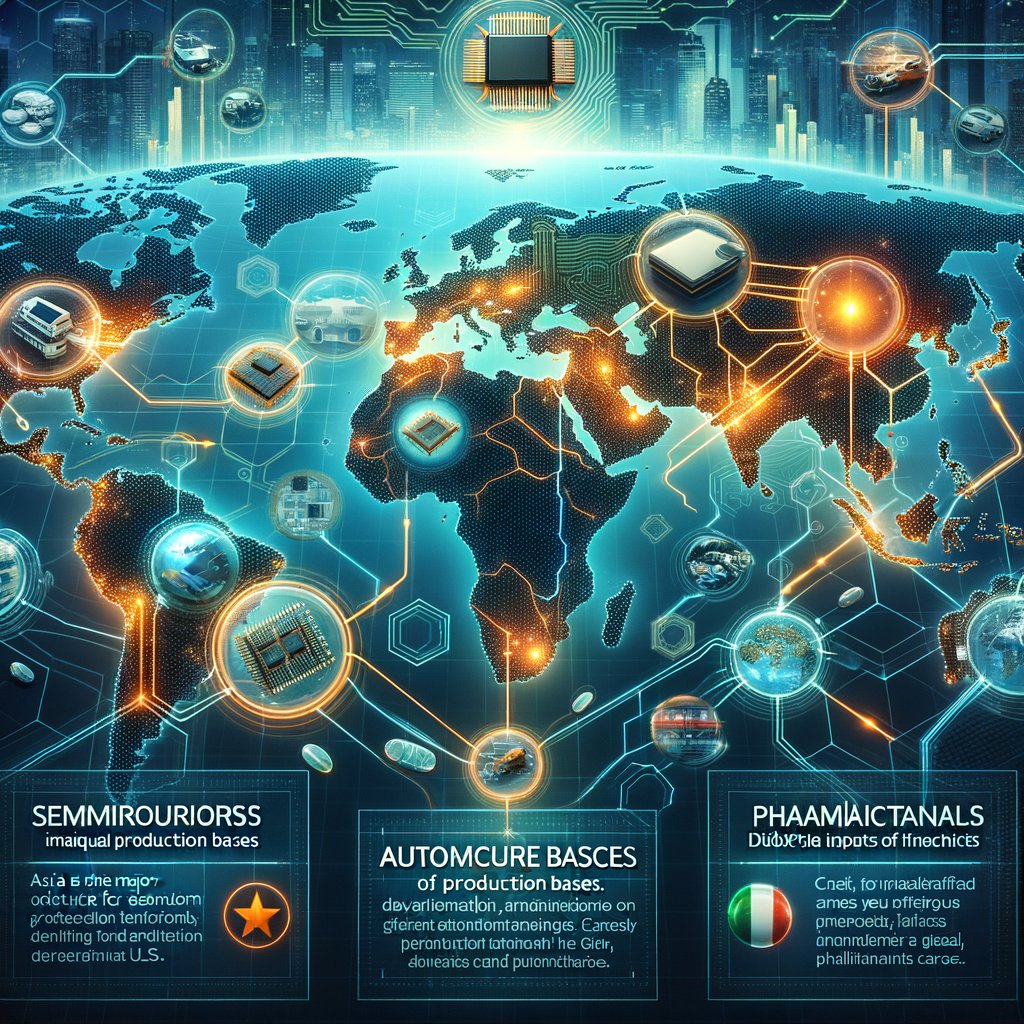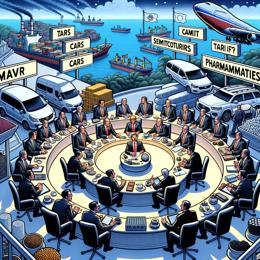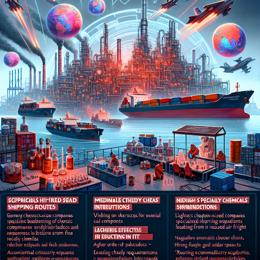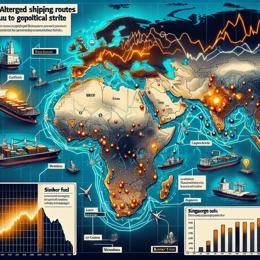Image created by AI
Global Economic Ripples: The Impact of Trump’s Proposed Tariffs on Semiconductors, Cars, and Pharmaceuticals
In a bold move that could redefine international trade relationships and economic landscapes, U.S. President Donald Trump has proposed substantial tariffs on key sectors—semiconductors, automobiles, and pharmaceuticals. These industries, integral to global supply chains, face a potential upheaval that could have far-reaching consequences.
### Semiconductors: Asia Feels the Heat
The semiconductor industry, vital for modern electronics and AI technologies, is predominantly stationed in Asia, with major production hubs in Taiwan and South Korea. Taiwan, home to semiconductor behemoth TSMC, exported nearly $37 billion worth of electronic components to the U.S. last year. Trump's proposed 25% tariff on semiconductors could motivate these Asian giants to diversify production and potentially accelerate existing plans to establish more manufacturing bases in the U.S.
South Korea, another major player, doubled its exports of electronic components to over $8 billion last year. An interruption in this supply chain due to tariffs could pose "serious challenges for the whole world," including the U.S., according to industry executives. The move may push companies within these nations to rethink and possibly re-align their global operational strategies.
### Automotive Industry: A Chain Reaction
The automotive sector could face a dramatic shift, given its deeply interconnected global supply chain. The U.S., as the world’s second-largest auto market, imported vehicles worth $269 billion last year, with significant shares from Mexico, Japan, South Korea, Canada, and Germany. Additional tariffs may not only disrupt operations for U.S. automakers with factories in these countries but also inflate vehicle prices for American consumers, as manufacturers might be unable to fully absorb these tariff costs.
Moreover, many international automakers have substantial manufacturing presence in the U.S., complicating the tariff implications. For instance, Toyota sold 2.3 million vehicles in the U.S. last year, half of which were manufactured locally. Similarly, German automakers like Volkswagen and BMW produce a significant number of vehicles in U.S. plants. The proposed tariffs could prompt a strategic reassessment for these companies concerning their U.S. and global production decisions.
### Pharmaceuticals: A Mixed Impact
The pharmaceutical sector might experience a relatively buffered impact compared to semiconductors and automobiles. The U.S. heavily depends on imports for its pharmaceutical needs, with Ireland—benefiting from its favorable tax rates—accounting for 30% of these imports. The proposed tariffs might lead to increased prices for generic drugs, which have tighter profit margins and are often produced abroad.
However, analysts from Moody's suggest that the “patients' medical needs, lack of substitutes, insurance coverage, and doctor preferences” might mitigate the impact on demand for branded pharmaceuticals. Many major drug companies have diversified manufacturing that includes U.S. facilities, possibly cushioning the blow from any tariff increases.
### Conclusion
As the global community watches closely, the potential imposition of these tariffs by President Trump could prompt significant shifts in global manufacturing, supply chains, and economic strategies across multiple industries. While some sectors like pharmaceuticals might withstand the changes, industries such as semiconductors and automotive could face more severe disruptions, leading to a possible realignment of global trade practices.










